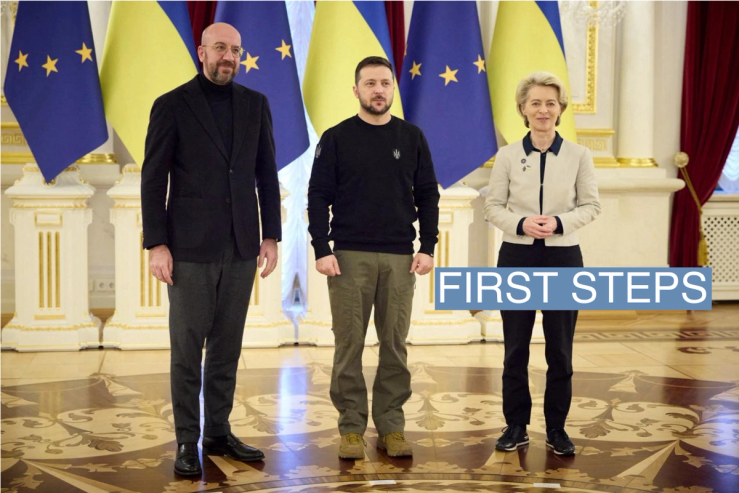The News
The European Union agreed to open accession talks with Ukraine, but failed to agree on an aid package for Kyiv.
Media around the world are reacting to the news, with some questioning how much Ukraine will gain from the agreement in the near-term.
SIGNALS
Promise of talks is limited in value
Moving ahead with EU accession talks may offer Ukrainian soldiers and civilians a boost in morale after nearly two years since Russia’s full-scale invasion. But “the commitments for accession negotiations are actually not worth much,” Brussels correspondent Christoph Schiltz wrote for German-language outlet Die Welt. That’s because it’s unclear when or if Ukraine would be admitted into the bloc: Membership could be decades off, he noted. “Much more important than a vague promise of accession would now be sufficient arms supplies for Ukraine,” Schiltz argued.
Orbán’s anti-Ukraine agenda
Hungarian Prime Minister Viktor Orbán remains a thorn in Kyiv’s side. He has played a defining role at the ongoing EU summit — vetoing the bloc’s Ukraine aid budget while stepping aside from talks where other leaders agreed to start accession negotiations, while still threatening he could block Kyiv’s membership. Orbán, the strongest supporter of Russia within the union, has some people questioning whether he has set out to paralyze the EU. Degrading Europe’s unity would “undermine the Ukrainians’ spirit of resistance” and boost Russia, Orysia Lutsevych, director of the Ukraine Forum at Chatham House, told Spanish outlet El País.
Anti-funding sentiment growing in West
The tide is turning in Western democracies, one columnist argued, pointing to Republicans in the U.S. and Orbán in Europe both openly blocking efforts to fund Kyiv. “Europe is heading for disaster,” Sylvie Kauffmann wrote for France’s Le Monde. If European leaders fail to overcome Budapest’s funding blockade, it will send “a signal of division and weakness” to Moscow, she noted.



